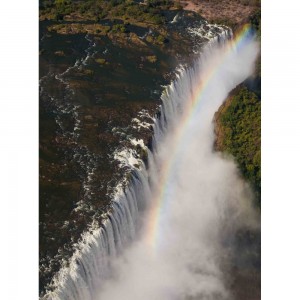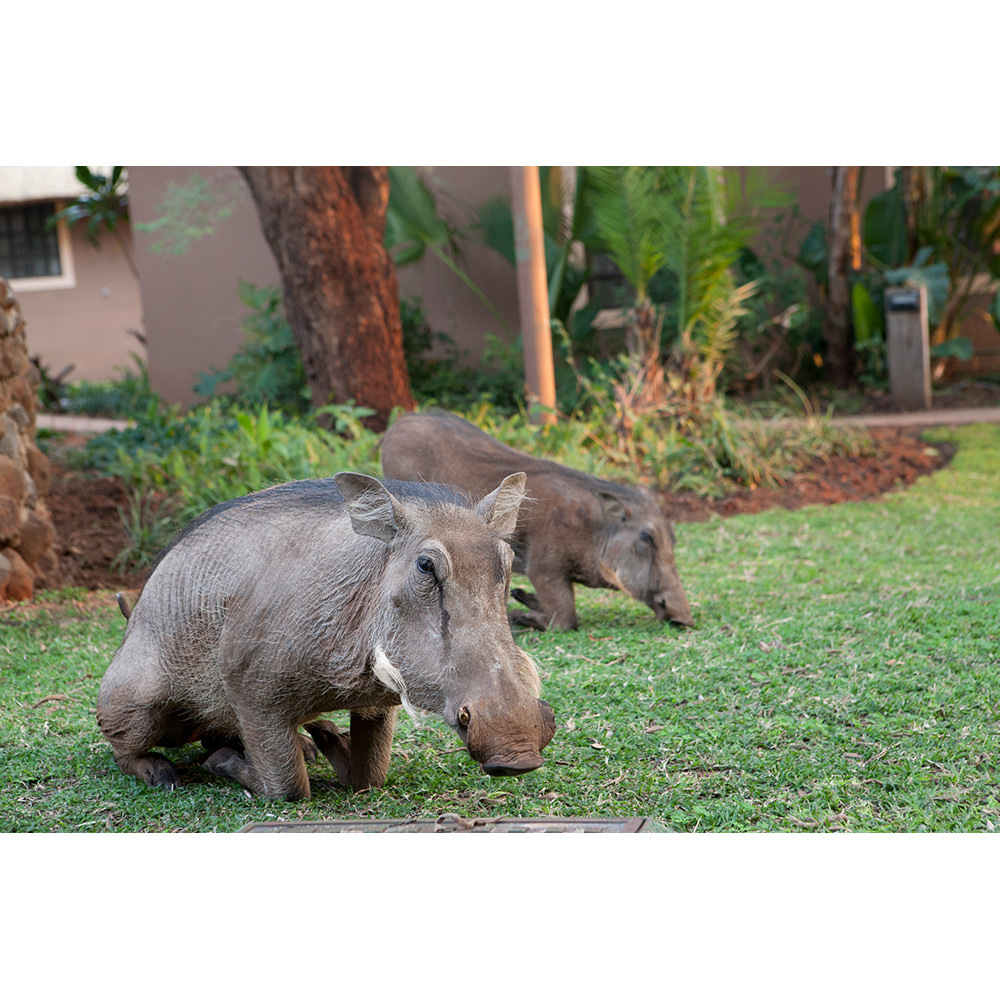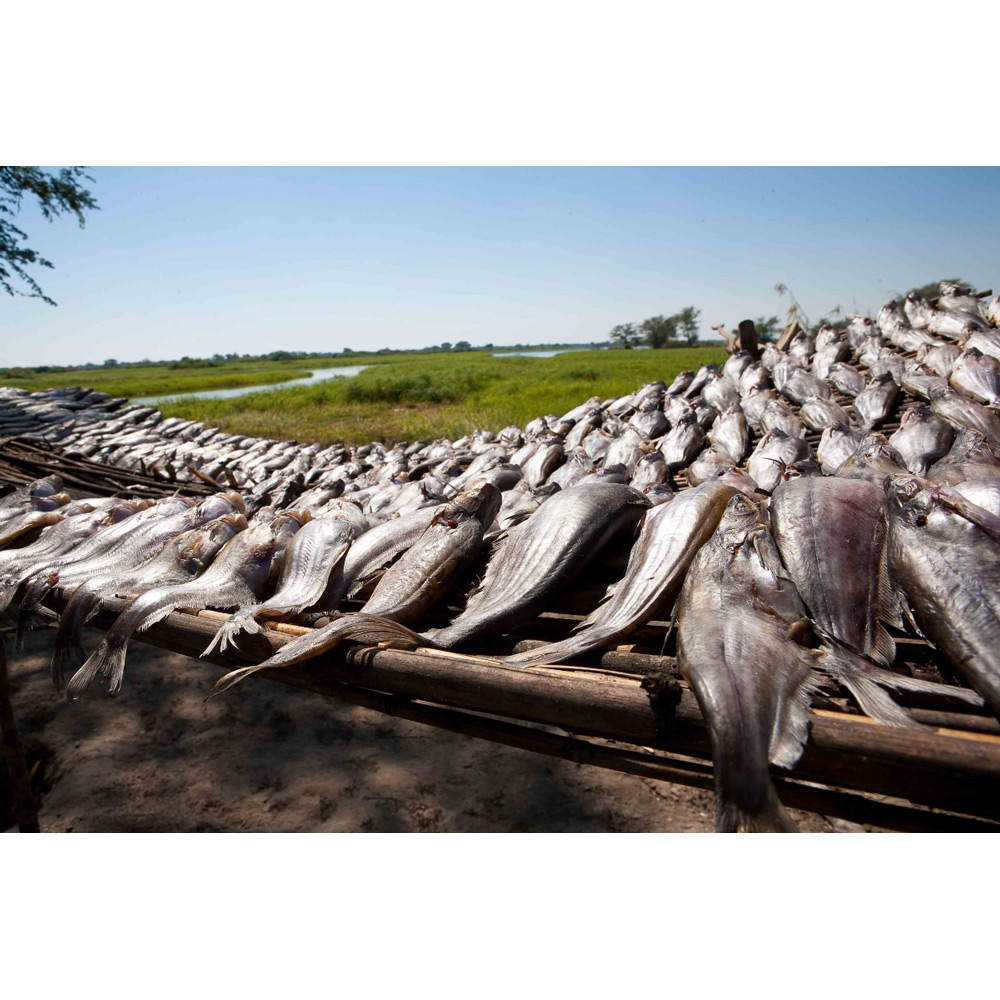On Kazungula Heartland
 Camera in hand, Becky traveled across Kazungula's landscapes and shared her experiences with AWF. Here she circles Victoria Falls between the countries of Zambia and Zimbabwe from a helicopter.
Camera in hand, Becky traveled across Kazungula's landscapes and shared her experiences with AWF. Here she circles Victoria Falls between the countries of Zambia and Zimbabwe from a helicopter.
During summer 2011, AWF Intern Becky Walter spent time in our Kazungula Heartland to photograph and blog about AWF’s projects, wildlife, and habitats there. AWF followed up with Becky last fall to get her insights on her travel.
Q: What was the goal of your internship?
A: I’m currently a senior at Ursinis College. I want to pursue conservation photography [after graduation], and AWF was looking at places where it needed more imagery. I ended up being based in Zambia, going into Botswana and Zimbabwe to document all the different projects in the Kazungula Heartland.
Africa is definitely my happy place: My dad is a wildlife artist and because of him, my family has been visiting Africa regularly since I was 7. Camping out in the Masai Mara, I became passionate about wildlife and conservation, as well as photography.
I was really happy and excited to work for AWF. It was my first time working for a nonprofit of this scale.
Q: Did you encounter any surprises during your internship?
A: I’m an environmental studies major so have spent most of my studies looking at nongovernmental organizations (NGO) that work on ecosystems or humanitarian issues. In so many cases, organizations weren’t really successful helping communities in either the natural (conservation) or human avenues. Often, NGOs build support but then withdraw—and when that support is withdrawn, the project can crumble.
I was interested to see what the human component of AWF was and whether it was strong on the ground. I was pleasantly surprised! The AWF staff uses a grassroots approach, providing benefits for wildlife and natural benefits for people as well.
Q: What was your favorite AWF project in the Kazungula Heartland?
A: I really liked Inyambo fish farm. The Lozi people are closely tied with the Zambezi River, but they were fishing with mosquito nets and really degrading the ecosystem through overfishing. The fish farm will give them an alternate source of food, and food security [for those times] when they can’t fish [to allow] the river to restore itself and regenerate.
 As an AWF intern, Becky believes that coexistence between wildlife and communities is key to conservation sustainability.
As an AWF intern, Becky believes that coexistence between wildlife and communities is key to conservation sustainability.
Q: What was the reaction of local communities to AWF projects?
A: The local people often seem to be hesitant and reserved about any proposed project at first, because outsiders have come in the past and stripped the land of natural resources. But once communities understand why AWF is there, they realize that economic incentives from the project will be made available for them. That was really cool, seeing the transformation as communities started to discover how these projects were a good thing.
With Lupani School [in the Sekute Chiefdom], for example, AWF’s investments are a source of pride in the community. These projects provide their community with tangible benefits and give the next generation more resources with which to build a better life for them and for the environment.
Local people recognize the importance and necessity of having wildlife and a protected area, to ensure a future not only for their children but also [to attract] more tourists. When they see how useful and how many good things come out of conserving land, I think they really connect with it.
It’s promising how AWF efforts are showing people what benefits they can get from living more naturally with the earth and respecting and safeguarding it against damage.
 Inyambo fish farm is just one example of an AWF project, introducing infrastructure to a community but then subsequently withdrawing, allowing the village to maintain the farm independently.
Inyambo fish farm is just one example of an AWF project, introducing infrastructure to a community but then subsequently withdrawing, allowing the village to maintain the farm independently.
Q: Anything else that struck you during your internship? A: One thing I would say is that, for me, this was an amazing experience. It was really cool, not only photographing and documenting each beautiful locale but also sharing them with the rest of the world.
Photography has a way of connecting people to far-off places in a way that writing really can’t alone, and photography in conjunction with writing made me really feel good about making a difference. Hopefully something I wrote or a photo I took will help change someone’s perspective about what’s going on.